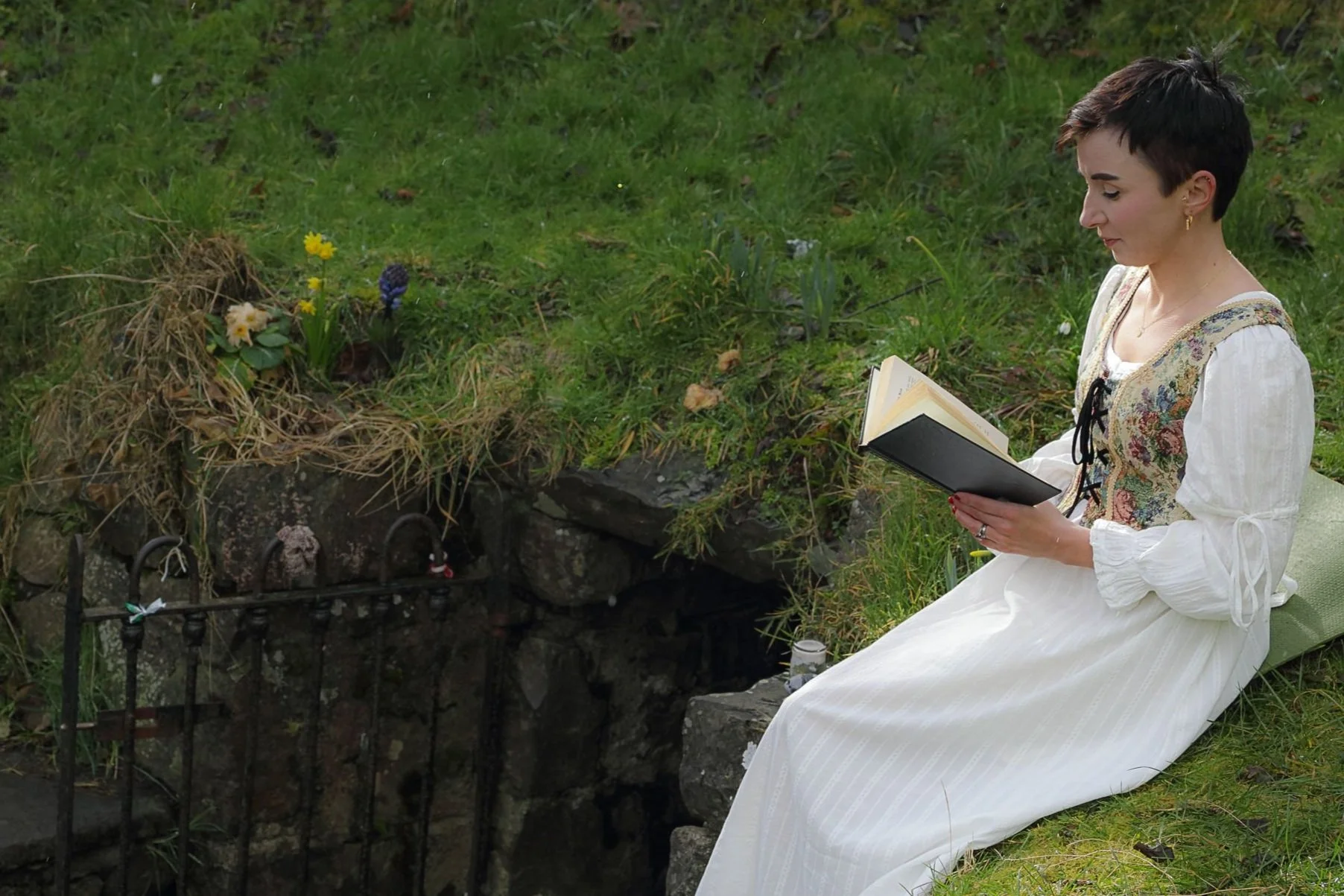
MUSINGS FROM THE OTHERWORLD
My current writings and musings on Celtic feminine mysticism and soulful living now find their home on Substack. I invite you to join me there but I’ve also preserved an archive of my previous writings (2021-2023) below.
Macha’s Curse
Macha (“MAWK-A”) is a formidable force in the Irish mythical tradition. Her name means ‘Plain of Land’ or ‘Field’. She is often interpreted as an aspect of the triple goddess the Morrígan ("MOR-REE-ghan"); essentially her sister. Some believe Macha herself is a triple goddess as there are multiple Macha’s in Early Irish Literature.
Macha (“MAWK-AH”) is a formidable force in the Irish mythical tradition. Her name means ‘Plain of Land’ or ‘Field’. She is often interpreted as an aspect of the triple goddess the Morrígan ("MOR-REE-ghan"); essentially her sister. Some believe Macha herself is a triple goddess as there are multiple Macha’s in Early Irish Literature.
In the story I share below, ‘The Pangs of Ulster’, Macha is described as a fairywoman. The Pangs is a remscéla (fore-tale) to the great Irish epic, Táin Bó Cúailnge, 'The Cattleraid of Cooley'. It is also known as Ces Ulad, 'The Affliction [or Debility] of the Ulstermen.'
Art: Macha by Bard Mythologies
THE PANGS OF ULSTER
There was a very rich landlord in Ulster, Crunniuc mac Agnomain. He lived in a lonely place in the mountains with all his sons. His wife was dead.
Once, as he was alone in the house, he saw a woman coming toward him there, and she was a fine woman in his eyes. She settled down and began working at once, as though she were well used to the house. When night came, she put everything in order without being asked. Then she slept with Crunniuc. She stayed with him for a long while afterward, and there was never a lack of food or clothes or anything else under her care.
Soon, a fair was held in Ulster. Everyone in Ulster, men and women, boys and girls, went to the fair. Crunniuc set out for the fair with the rest, in his best clothes and in great vigour.
‘It would be as well not to grow boastful or careless in anything you say,’ the woman said to him.
‘That isn’t likely,’ he said.
The fair was held. At the end of the day the king’s chariot was brought onto the field. His chariot and horses won. The crowd said that nothing could beat those horses.
‘My wife is faster,’ Crunniuc said.
He was taken immediately before the king and the woman was sent for. She said to the messenger:
‘It would be a heavy burden for me to go and free him now. I am full with child.’
‘Burden?’ the messenger said. ‘He will die unless you come.’
She went to the fair, and her pangs gripped her. She called out to the crowd:
‘A mother bore each one of you! Help me! Wait till my child is born.’
But she couldn’t move them.
‘Very well,’ she said. ‘A long-lasting evil will come out of this on the whole of Ulster.’
‘What is your name?’ the king said. ‘My name, and the name of my offspring,’ she said, ‘will be given to this place. I am Macha, daughter of Sainrith mac Imbaith’ [possibly means, ‘Strange son of Ocean’].
Then she raced the chariot and outran the horses. As the chariot reached the end of the field, she gave birth alongside it. She bore twins. a son and a daughter. The name Emain Macha, the Twins of Macha, comes from this.
As she gave birth she screamed out that all who heard that scream would suffer from the same pangs for five days and four nights in their times of greatest difficulty. This affliction, ever afterward, seized all the men of Ulster who were there that day, and nine generations after them. Five days and four nights, or five nights and four days, the pangs lasted. For nine generations any Ulsterman in those pangs had no more strength than a woman on the bed of labour.
Photo: Emain Macha known today as Navan Fort in Co. Armagh. It was the royal capital of the kingdom of Ulster in pre-Christian Ireland. Only last year, archaeologists discovered new evidence of monumental Iron Age temples and religious complexes at Emain Macha.
THE DARK FEMININE WITHIN
Macha’s curse is critical to the unfolding of the Táin as the Ulstermen in the throes of childbirth are unfit for combat. And so, akin to her sister the Morrígan, as a fierce protectress of the land, Macha’s story is an example of the power of feminine grief, fury and retaliation in influencing the outcome of warriors in battle. In fact, the heads of mortally wounded warriors in battle are known as, 'Macha's acorn crop'. She embodies the dark feminine.
When we experience the dark feminine within us, we often reject her because she is simply not welcome in our society and so, she is not welcome in our bodies (as systems of oppression play out within our own bodies). These ‘dark’ emotions get stored as frozen tension within our being. They become our shackles. We enter a freeze state to cope with the threat of their activation.
Yet these emotions so desire to be felt, to be expressed, to be metabolised within a container of safety. They are a source of fuel, of lifeforce energy, of power.
I’M RAGING
For me, Macha serves as a reminder of how transformational expressing our rage can be. Macha’s rage is so potent it holds a supernatural force. I’ve yet to meet a woman who has not experienced the internalised rage of living in a patriarchal world. Expressed in healthy ways, rage can be a catalyst for change.
My most recent experience of rage happened the past week. I’m up on the Inishowen peninsula spending time in the wilds of beloved Donegal. On a visit to Doagh Famine Village, there was an exhibit of a ‘sod house’ a tiny exposed shelter on the outskirts of a community that an unmarried mother was sent with her baby to live because of the ‘shame’ she brought upon her family. Literally an outcast barely surviving in the wild. And what about the father?! This filled me with a bloody rage!
It brought me back to present-day Ireland, of a society simmering with untold grief as more is released about the cruel and abhorrent treatment of mothers and babies under the ‘care’ of the Catholic Church. One of the many grieving processes we’ve had to endure as we disentangle ourselves from the stranglehold of the church. And yet, this collective pain pales in comparison to the experiences at the individual level of the courageous survivors. This has affected my immediate family as one of my own siblings was born in a mother and baby home.
I am raging.
Art: ‘The goddess Macha curses the Men of Ulster’ by Stephen Reid, 1909
SO WHAT TO DO WITH THIS RAGE?
In the past my first step was activism. Straight into my masculine mode, taking action first. This came at the expense of my body because I didn’t metabolise the rage within. I spent 14 years working in global justice and it was only towards the end of my career, that I began to pay attention to my body’s response to injustice. This resulted in despair, exhaustion and multiple burnouts.
The first step now for me is noticing where I feel rage in my body:
I feel it build at the back of my throat
The sound it makes comes from that place, it’s almost feline like a hissing growl
This sensation in my throat connects to a hallow swell in my stomach
My heart contracts and my chest pushes up and out
My eyes squint, brow furrows
My pulse races
I then move through these feeling states whenever I can find a safe space. My two go-to methods to do this are conscious shaking or by using a ‘move as you are feeling’ practice like my own, Celtic Woman’s Call, or Primal Feminine Flow taught to me by my teacher, Jenna Ward.
Awareness of what is happening in our bodies and responding in real time is an immense source of personal power. It influences the impact of our stress response. It helps us move energy that could otherwise get stored as frozen trauma through out bodies, and use it to influence the actions we take. In my body, this moves me from a chaotic reactive space - to a rooted embodied response. It helps me feel sovereign.
As an activist my process now is to 1. Metabolise the feeling 2. Take empowered action from this place.
WHAT ABOUT YOU?
Grab yourself a cuppa, and cosy up with your journal as you reflect on Macha’s story and what it means to you. Here are some self-inquiry prompts to help:
What speaks to you about Macha’s story?
What thoughts, feelings or sensations bubbled in your body as you explored this myth? Where did they bubble?
Can you locate where you feel rage in your body?
What could help you metabolise your rage in healthy ways?
SOURCES:
The Táin: From the Irish Epic Táin Bó Cúailnge (The Cattleraid of Cooley) by Anonymous translated by Thomas Kinsella





